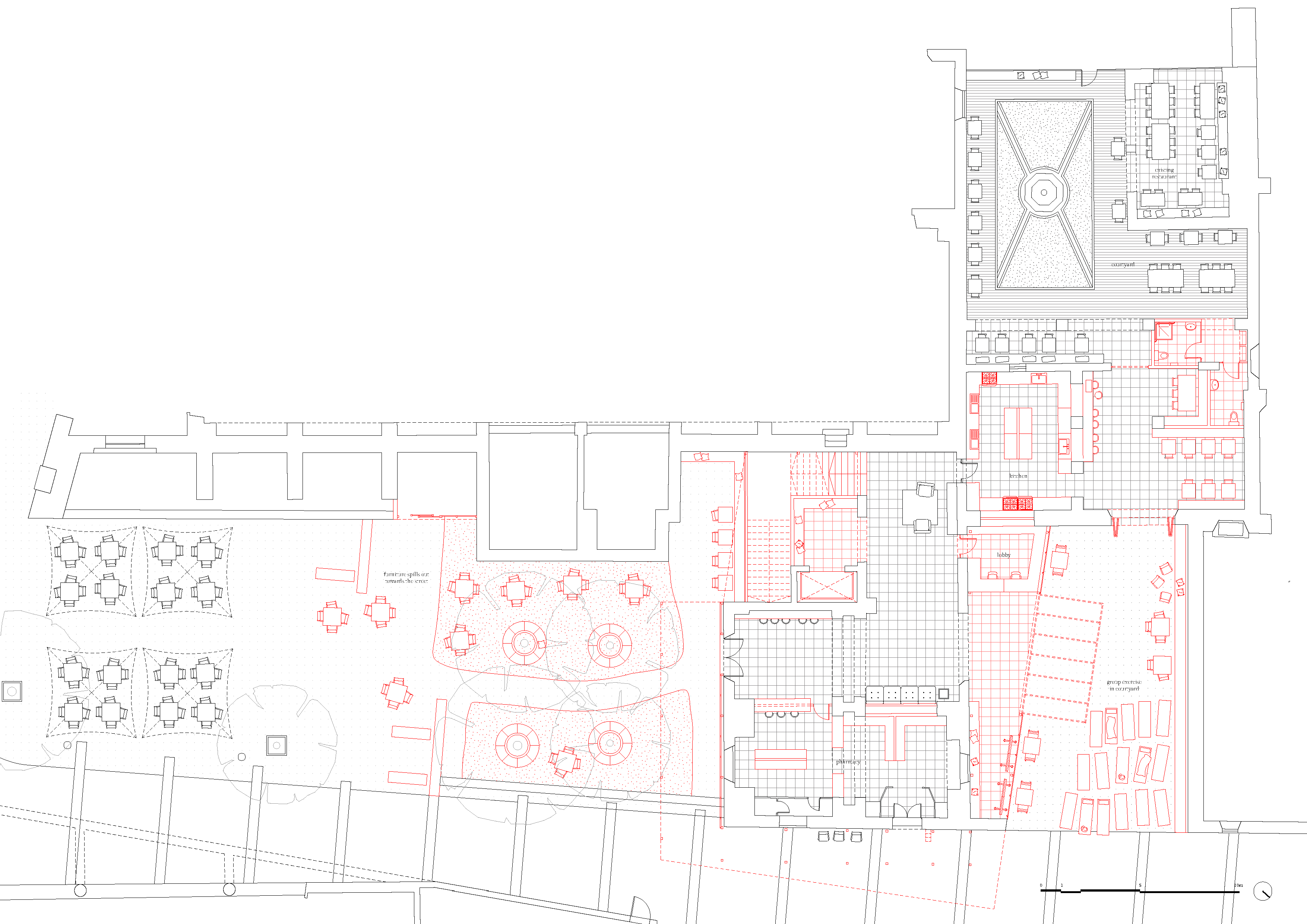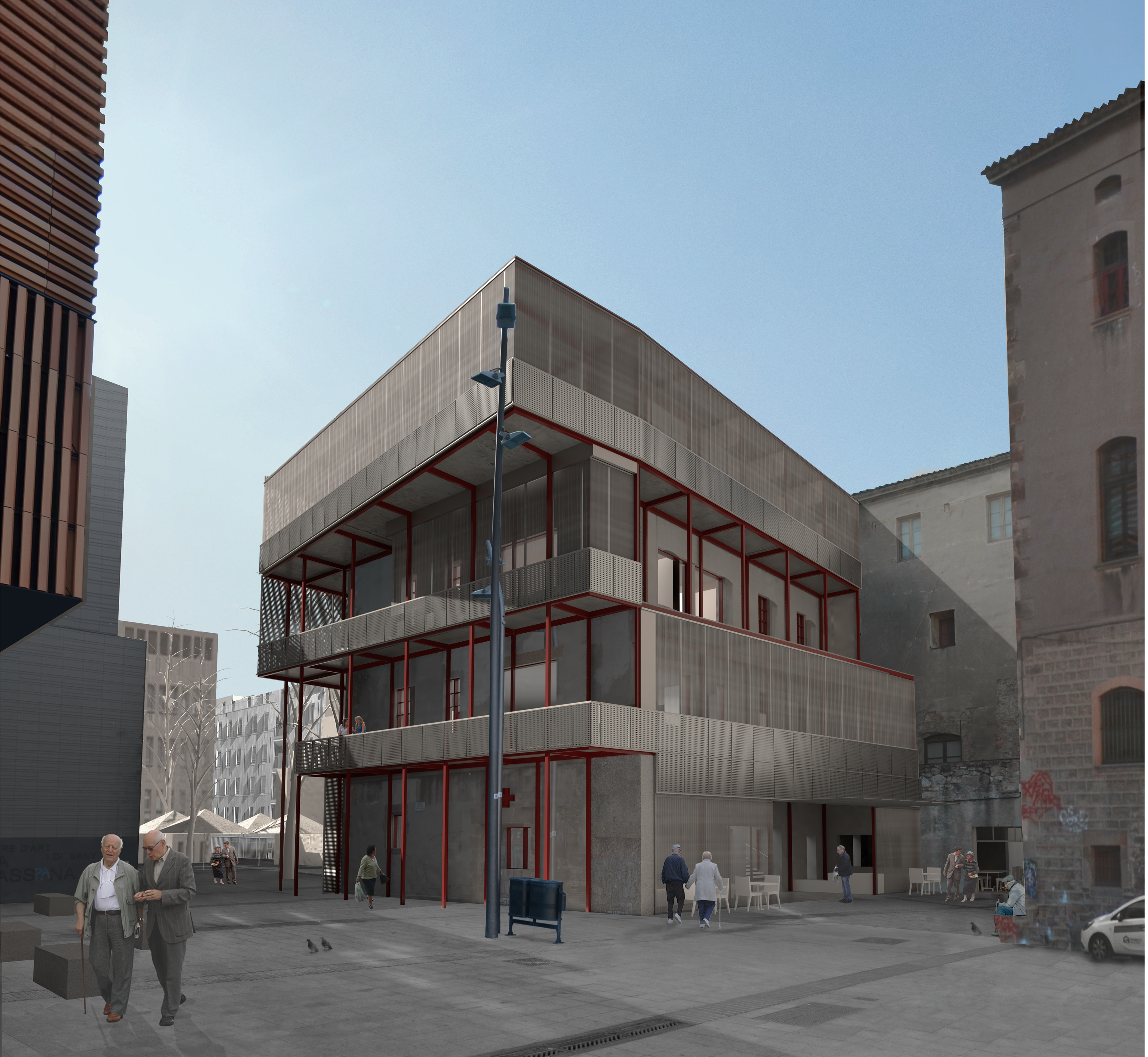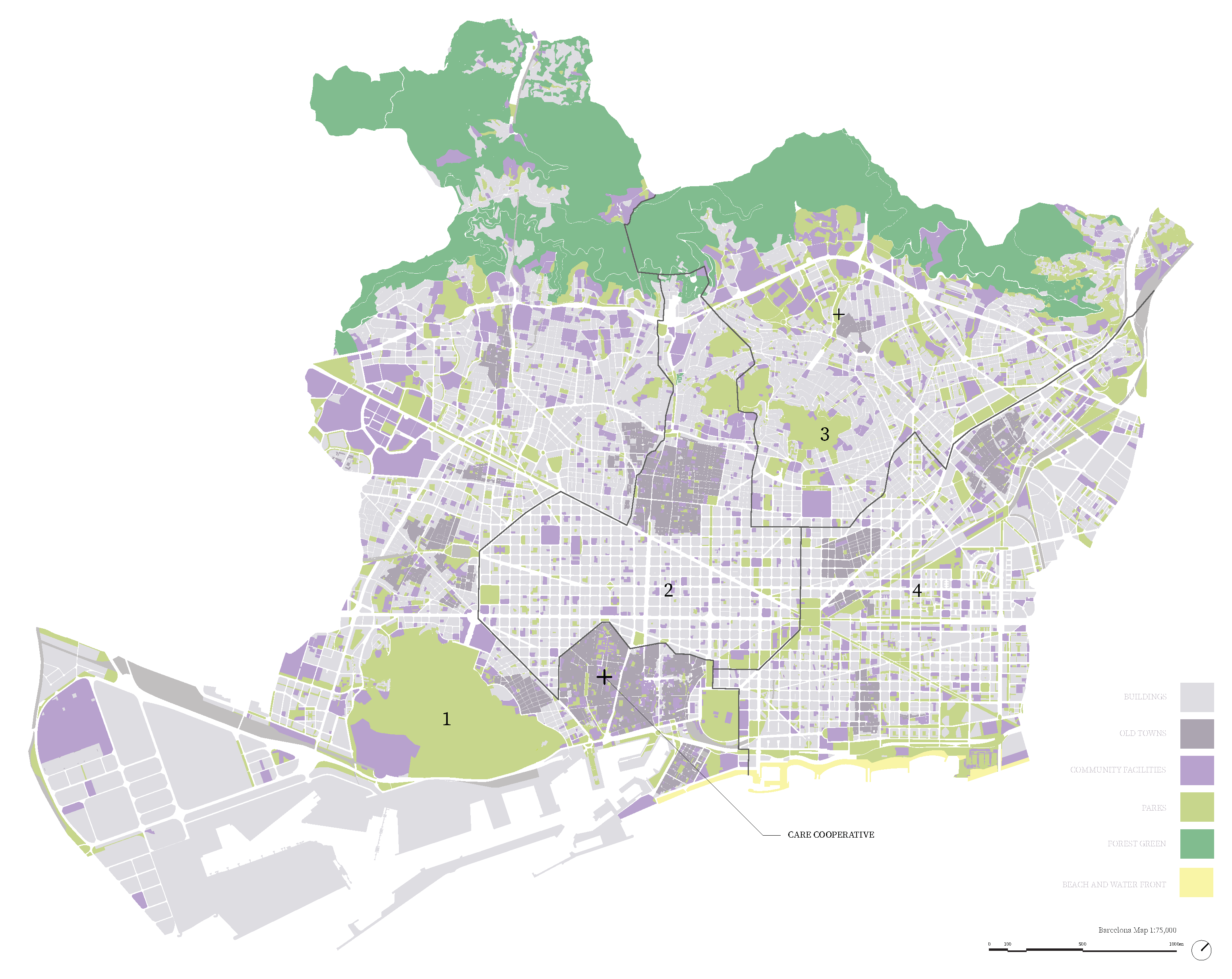Title: Care Cooperative
Work: Architecture & Design Research
Location: Barcelona
Date: 2018
Details:
As Barcelona’s significant elderly population grows so too does the city’s need for elder care. In many cases this care is now provided by a domestic care worker - the vast majority of whom are women employed on low wages under temporary contracts with poor working conditions. To assist in improving the conditions of these care workers, the municipality of Barcelona aims to develop a cooperative care model, in which both care workers and their users are members. This will allow care users greater agency over the care they receive, whilst ensuring care workers greater control over how their labour is compensated.
This new care model is to be supported by a series of 300 care cooperatives spread throughout Barcelona. Each of these cooperatives will be housed in existing buildings, each one altered by the addition of new, lightweight structures attached to the available facades. These new structures are to house a variety of intermediary spaces that blur the boundary between care facility and public space. Practices within the building interior and in the public sphere are linked and thus altered thanks to this new care interface.
The aim of the project is to reorganise how the elderly and carers relate with each other, and with their own neighbourhoods. This is achieved by adding commercial and public care components to the basic ‘rest stop’ for the care workers, and by connecting the cooperative to existing local businesses and educational facilities. It is essential to address the day-to-day functioning of the institution as well as the long-term changes it may bring to each neighbourhood. Ultimately the broader aim of the care cooperative is to improve how domestic labour is valued, and to reaffirm the constructive role of the elderly to our society.
Work: Architecture & Design Research
Location: Barcelona
Date: 2018
Details:
As Barcelona’s significant elderly population grows so too does the city’s need for elder care. In many cases this care is now provided by a domestic care worker - the vast majority of whom are women employed on low wages under temporary contracts with poor working conditions. To assist in improving the conditions of these care workers, the municipality of Barcelona aims to develop a cooperative care model, in which both care workers and their users are members. This will allow care users greater agency over the care they receive, whilst ensuring care workers greater control over how their labour is compensated.
This new care model is to be supported by a series of 300 care cooperatives spread throughout Barcelona. Each of these cooperatives will be housed in existing buildings, each one altered by the addition of new, lightweight structures attached to the available facades. These new structures are to house a variety of intermediary spaces that blur the boundary between care facility and public space. Practices within the building interior and in the public sphere are linked and thus altered thanks to this new care interface.
The aim of the project is to reorganise how the elderly and carers relate with each other, and with their own neighbourhoods. This is achieved by adding commercial and public care components to the basic ‘rest stop’ for the care workers, and by connecting the cooperative to existing local businesses and educational facilities. It is essential to address the day-to-day functioning of the institution as well as the long-term changes it may bring to each neighbourhood. Ultimately the broader aim of the care cooperative is to improve how domestic labour is valued, and to reaffirm the constructive role of the elderly to our society.



Barcelona’s domestic care services are currently provided by private companies operating in 4 zones across the city.